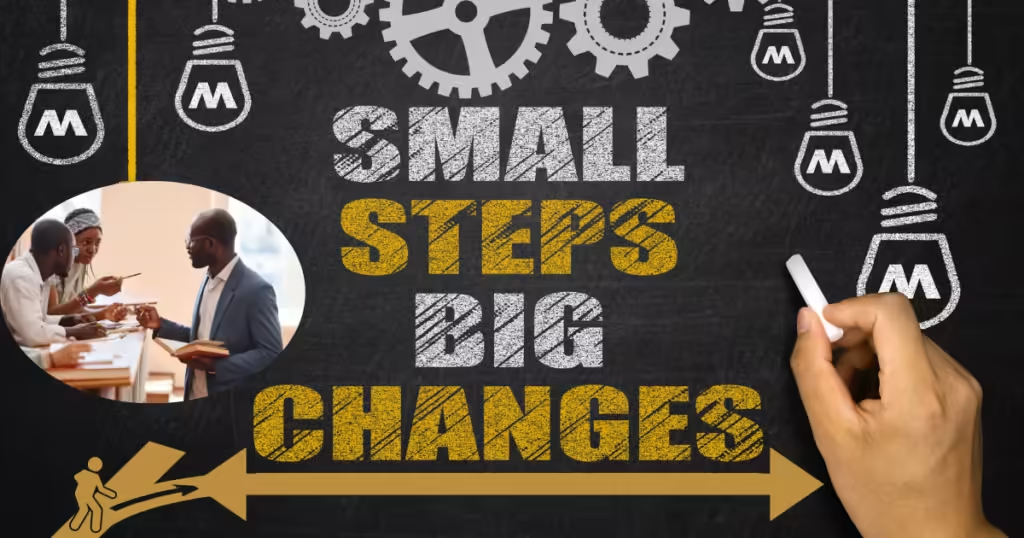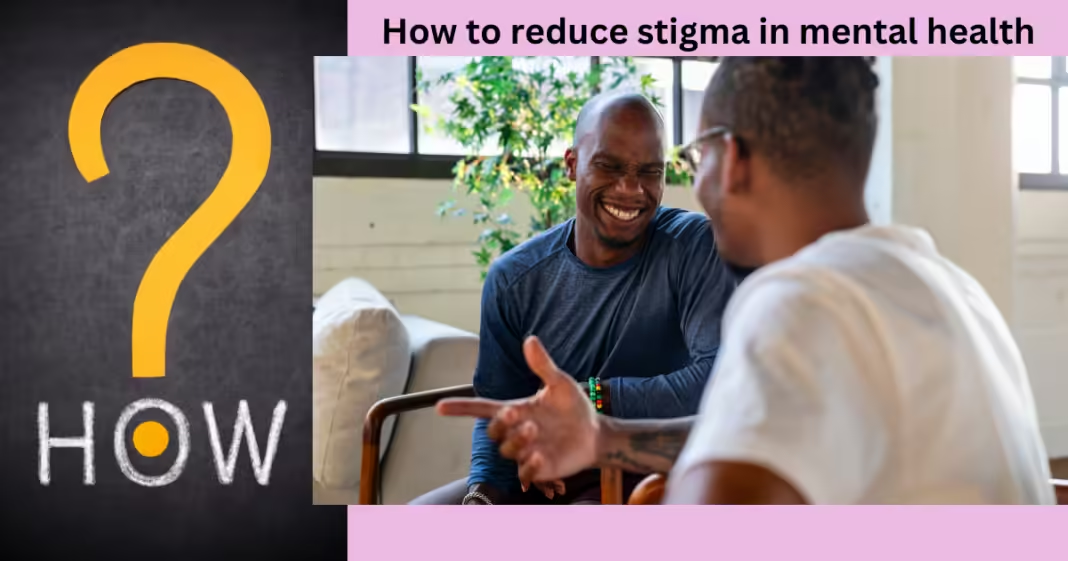reduce stigma In 2024, mental health stigma continues to affect countless individuals, making it challenging for them to seek help or share their struggles openly. This stigma often arises from cultural stigmas, outdated stereotypes, and misinformation, creating an environment of judgment and misunderstanding. Sadly, these negative perceptions can lead to untreated mental health challenges, worsening a person’s overall well-being.
To reduce stigma, it’s essential to shift societal attitudes toward mental health. Encouraging understanding, empathy, and open communication can help individuals feel safe discussing their experiences. Education, support, and community involvement play a vital role in normalizing mental health conversations and replacing negativity with positive perspectives.
By treating mental health with the same importance as physical health, we can foster a culture of acceptance and compassion. Let’s dive deeper into the roots of mental health stigma and explore practical ways to create positive vibes and a more inclusive future.
Understanding the Roots of Mental Health Stigma
The reduce stigma surrounding mental health often stems from deep-seated beliefs and attitudes ingrained in society. Cultural stigmas, in particular, play a significant role in shaping how people perceive mental health challenges. In some cultures, mental health issues are seen as a sign of weakness or moral failing, leading to judgment and discrimination against those who are struggling. These misconceptions can be passed down through generations, making it difficult to break the cycle.
Media portrayals also contribute to the stigma. Stereotypical depictions of individuals with mental health issues often paint them as dangerous or unstable, reinforcing negative perceptions. This creates fear and misunderstanding, discouraging people from discussing their experiences openly.
Additionally, a lack of education about mental health can exacerbate the problem. When communities have limited access to accurate information, myths and misinformation thrive. People may avoid seeking help out of fear of being labeled or ostracized.
To address the roots of mental health stigma, it is essential to challenge cultural stigmas, educate communities, and promote a more compassionate understanding of mental health. By addressing these root causes, we can foster an environment where individuals feel safe to seek help and support without fear of judgment.
The Power of Education in Changing Perspectives

Education is one of the most effective tools to reduce stigma around mental health. When people are provided with accurate information, it helps dismantle myths and misconceptions that perpetuate negativity. Awareness campaigns, workshops, and accessible resources can enlighten communities about the reality of mental health challenges and the importance of seeking help.
A major barrier to acceptance is the lack of understanding about mental health conditions. People often fear what they don’t understand, leading to stereotypes and judgments. By educating the public, we can highlight that mental health conditions are common and manageable with the right support. For example, sharing stories of individuals who have overcome mental health struggles can inspire empathy and acceptance.
Schools, workplaces, and community centers can play a critical role in spreading awareness. Incorporating mental health education into curriculums helps foster understanding from a young age. Similarly, workplace programs can reduce stigma by teaching employees how to support colleagues facing mental health challenges.
Education also empowers individuals with the knowledge to recognize signs of mental health issues in themselves or others and seek professional help without shame. By promoting facts over fear, we can create a culture of empathy and understanding, helping to reduce stigma and replace it with acceptance.
Encouraging Open and Honest Conversations
Open and honest conversations about mental health are crucial to reduce stigma. Talking openly helps normalize the topic, breaking down the walls of silence that often surround mental health issues. When people feel safe sharing their experiences, it fosters understanding and creates a supportive environment-reduce stigma.
One way to encourage these conversations is by leading with empathy and active listening. Whether it’s among friends, family, or colleagues, creating a non-judgmental space allows individuals to express their feelings without fear of criticism. Sharing personal stories of overcoming mental health challenges can also inspire others to open up, showing them they are not alone.
Community platforms and social media can amplify these conversations. Online campaigns, hashtags, and forums where people discuss mental health openly can help challenge misconceptions and reduce stigma on a larger scale. Additionally, public figures and influencers sharing their mental health journeys can set powerful examples.
Breaking cultural barriers is another vital step. In some communities, cultural stigmas discourage open discussions about mental health. Addressing these issues with sensitivity and respect can encourage more people to participate.
Ultimately, conversations reduce stigma can transform perceptions. By making mental health discussions a part of everyday life, we foster a culture where seeking help and supporting others becomes a norm rather than an exception.
Supporting Individuals with Mental Health Challenges
Supporting individuals with mental health challenges is essential to reduce stigma and create a more inclusive society. Many people facing these challenges feel isolated or judged, which can worsen their condition. By offering understanding and practical support, we can help them navigate their journey with dignity and hope.
The first step is to listen without judgment. Sometimes, all someone needs is a compassionate ear to feel less alone. Avoid dismissing their feelings or offering unsolicited advice; instead, focus on understanding their perspective and validating their experiences.
Encourage professional help, such as therapy or counseling, while respecting their pace and decisions. Assure them that seeking help is a sign of strength, not weakness. Supporting them in finding resources, attending appointments, or exploring treatment options can make a significant difference.
Breaking cultural stigmas is also critical. In some communities, mental health challenges are often misunderstood or ignored. Advocating for education and awareness within these cultures can help individuals feel more supported and less judged.
Finally, be patient and consistent. Recovery is not linear, and small gestures, like checking in regularly or offering companionship, can mean a lot. By standing beside individuals with mental health challenges, we not only support them but also contribute to reducing stigma for everyone.
Building Inclusive Communities for Mental Wellness
Creating inclusive communities is vital to reduce stigma and promote mental wellness. When individuals feel accepted and supported, they are more likely to seek help and share their experiences without fear of judgment. Inclusive communities foster a sense of belonging, which is essential for mental well-being.
To build such communities, it’s important to prioritize empathy and inclusivity. Encouraging schools, workplaces, and social groups to adopt mental health-friendly policies can create environments where everyone feels valued. For example, offering mental health days or providing access to counseling services demonstrates that mental health is taken seriously.
Community events and initiatives can also play a role. Hosting awareness workshops, support groups, or mental health fairs helps spread understanding and reduces stigma. These activities can bring people together, break cultural stigmas, and emphasize the message that mental health challenges are a part of the human experience.
Social media and digital platforms offer another opportunity to build inclusive spaces. Online forums and groups where individuals can share their stories and support each other can help bridge gaps in understanding, especially in culturally diverse communities.
By building inclusive communities that celebrate diversity and provide support, we create a culture of care, helping to reduce stigma and promote collective mental wellness.
Conclusion
Reducing stigma around mental health is a collective responsibility that requires consistent effort and compassion. By addressing cultural stigmas, educating communities, encouraging open conversations, and supporting individuals with mental health challenges, we can create a more understanding and inclusive society.
Education empowers people to replace myths with facts, while open dialogue breaks down barriers and normalizes discussions about mental health. Building inclusive communities ensures that no one feels isolated or judged, promoting a culture of care and acceptance. Each small action—whether it’s listening without judgment, sharing personal stories, or advocating for mental health policies—contributes to a larger movement toward reducing stigma.
As we move forward, it’s important to remember that change takes time, but every step brings us closer to a world where mental health is treated with the respect and priority it deserves. Together, we can foster a positive and supportive environment for everyone.
faq’s
Why is reducing stigma around mental health important?
Reducing stigma is essential because it encourages individuals to seek help without fear of judgment or discrimination. Stigma can prevent people from addressing their mental health challenges, leading to untreated issues that negatively impact their overall well-being.
How can education help reduce stigma?
Education provides accurate information about mental health, replacing myths and misconceptions with understanding. It promotes awareness of common challenges, reduces fear, and fosters empathy, encouraging acceptance and support within communities.
What role do cultural stigmas play in mental health?
Cultural stigmas often lead to shame and silence around mental health issues. In many cultures, mental health challenges are misunderstood or seen as a weakness, which discourages individuals from seeking help. Addressing these stigmas through education and dialogue is key to fostering change.
How can I support someone with mental health challenges?
Start by listening without judgment and showing empathy. Encourage them to seek professional help while respecting their choices. Small acts like checking in regularly or offering companionship can make a big difference. Your support can help them feel less isolated and more empowered to take steps toward recovery.




